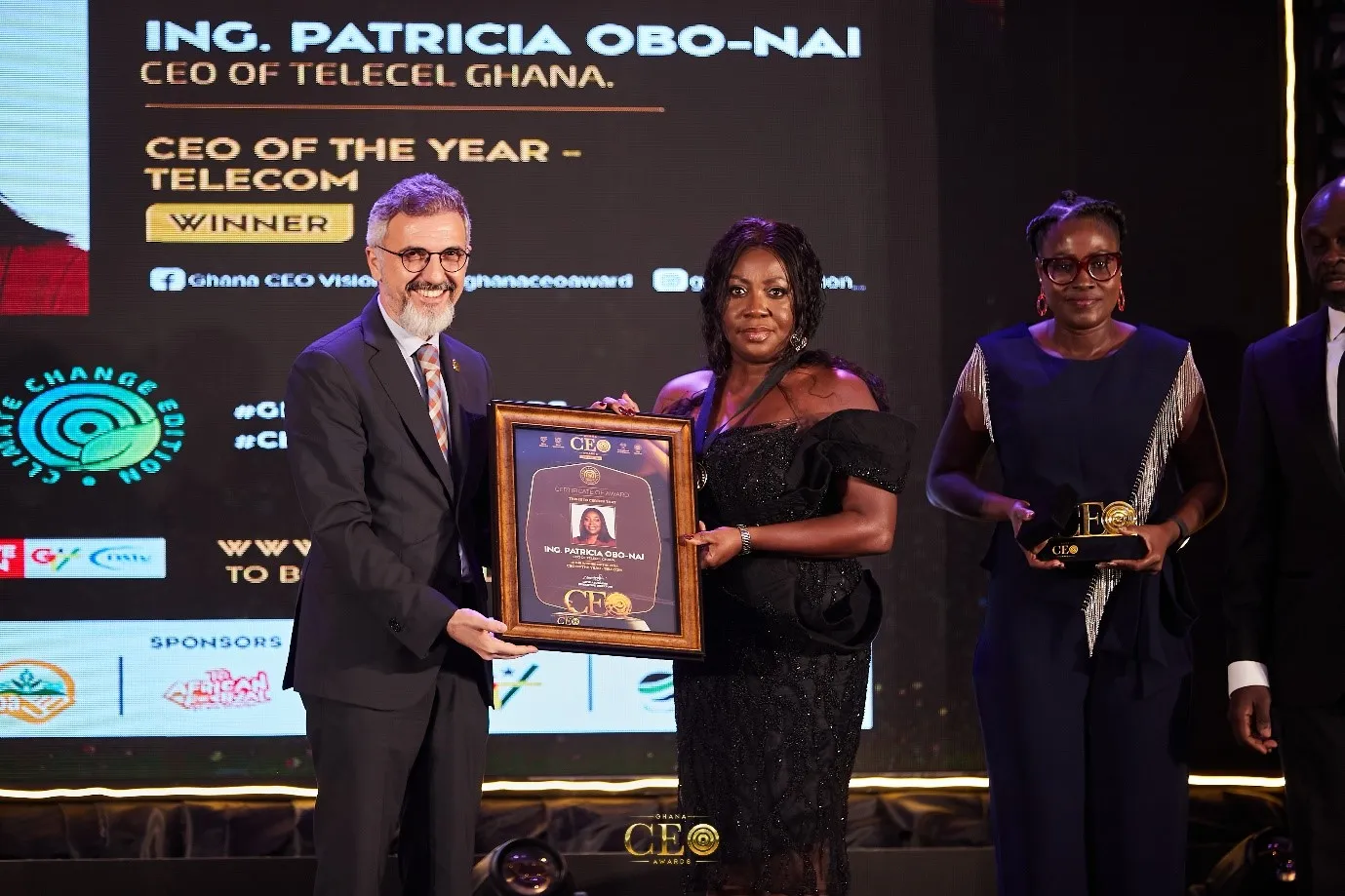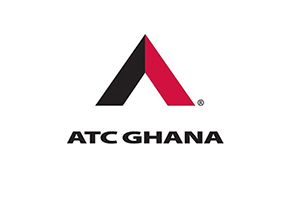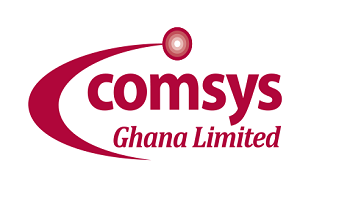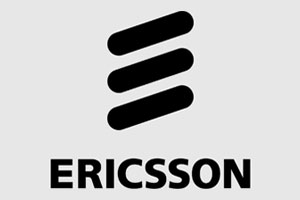The Ghana Chamber of Telecommunications is a private initiative and industry association created by mobile network operators in Ghana. It was established to advocate for telecommunications policy, legislation, and regulation, and to conduct research for the advancement of the telecommunications industry in Ghana.
Registered in 2010 and inaugurated in 2011, the Chamber has played a significant role in shaping policy direction, research among other feats. The Chamber is run by a secretariat and governed by a Governing Council, and it pursues ‘co-opetition’, which involves cooperation among members on matters of common interest while still maintaining healthy competition.
The Chamber's Technical, Finance, Communications, and Legal & Regulatory working groups provide professional and technical capacity to support the Chamber's activities. Each member has a representative on these groups, which provide inputs on industry issues and help develop industry positions that drive innovation, economic growth, and societal inclusion.
The Chamber has achieved several milestones in recent years, including the reduction of import duty on handsets through engagement with key stakeholders, resulting in a reduction from 20% to 10% under CET. The Chamber was instrumental in facilitating in the reduction of the e-levy from 1.5% to now 1%.
The Chamber facilitated industry inputs towards the launch of the EMI Guidelines and ultimately the passing into law the Payment Systems and Services Act 2019 (Act 987).
Regarding tower moratorium, the Chamber sought a complete waiver of the tower moratorium. As such, engaged the Regulator (NCA) for a complete review of the Tower Guidelines. The Chamber worked with other key stakeholders such as the Environmental Protection Agency (E.P.A), the Radiation Protection Institute (R.P.I) etc. and now there is a final document pending before the NCA.
The Chamber has also reviewed the decade-old Road Reservation Manual, under the ambit of the National Engineering Coordinating Team (NECT), to include key industry issues and ensure better efficiency in the RoW issues. The members have been provided with draft copies of the manual, and a date of launch is yet to be announced by the Road Agencies. NECT's revival is notable as the Chamber assumes the Chairmanship leadership position. Additionally, telecom companies now share ducts, initially originating from Pokuase and subsequently replicated along the Tema to Aflao road project, the La Beach road project, and other upcoming initiatives. To further strengthen community involvement, the Chamber has undertaken regional sensitization workshops, engaging stakeholders in four regions: Eastern, Western, Central, and Ashanti to conscientize stakeholders to protect telecom infrastructure.
The Chamber has worked effectively with the NCA, MLGRD, MOC, Judiciary, etc., to harmonize Bills Of Payments (BOPs) and local authority levies in accordance with Act 775. Rate Guidelines were adopted through 2014 and beyond, and the Chamber continues to engage MLGRD, DCE’s on isolated cases of resistance to foster alignment and safeguard members’ interests.
In addition, the Chamber has proactively collaborated with PwC in previous years to consolidate and effectively communicate the contributions made by the telecommunications sector in terms of taxes. The telecommunications industry contributed 7.7% of the Government's Tax Revenue while its contribution to Non-Oil GPD was 6.32% in 2021. The industry's tax as a percentage of its total revenue for 2021 was 47.38% from 46.77% in 2020. This strategic effort aimed to influence the government's decision-making process, reducing the inclination for imposing new taxes, and simultaneously encouraging increased investment in the industry. Presently, the Chamber continues its partnerships with key stakeholders such as the Ghana Revenue Authority and GSMA to annually communicate the industry's contributions. Moreover, the Chamber has successfully introduced metrics such as CAPEX levels and CSR (Corporate Social Responsibility) into the Telecommunications Tax Code (TTC) framework.
The Chamber has actively collaborated with various government entities and key stakeholders to drive positive changes in the mobile industry and the economy. Working alongside Parliament, Presidency, MOTI, and GIPC, the Chamber played a pivotal role in advocating for the amendment of clauses and provisions in the GIPC Amendment Bill of 2013 that had detrimental impacts on the mobile industry and overall economy.
Furthermore, the Chamber worked closely with the Office of the Vice President and other stakeholders to successfully implement Mobile Money interoperability, ensuring seamless transactions across different mobile money platforms. Additionally, the Chamber made significant contributions to the drafting of the Cybersecurity 2020 (ACT 1038) and the Critical Information Infrastructure Directive. These initiatives aimed to safeguard critical information infrastructures that are crucial for national security, as well as the economic and social well-being of citizens.
In addition to these achievements, the Chamber has been engaged in various activities, including:
• Participation in Annual World Consumer Day Celebration
• Combatting fraud activities through our Fraud Control Dashboard(FCD)
• Collaboration with Child Online Africa on Child Online Protection campaigns (CoP)
• Active media engagement through Media Dialogue sessions
• Organizing the annual Mobile Technology for Development (MT4D) conference
• Celebration of the Chamber's 10th Anniversary
• Worked in collaboration with Ghana Health Service and other partners to addressing challenges posed by the COVID-19 pandemic
• Collaboration with international bodies such as GSMA, to organize workshops on Gender Gap, 5G, and research on E-levy
• Involvement in conferences organized by ITU (International Telecommunication Union) and ATU (African Telecommunications Union)
These activities collectively showcase the Chamber's dedication to advancing the mobile industry, protecting consumer interests, and fostering collaboration with international partners.
In terms of finances, the Chamber has over the last 10 years managed the purse of its members meticulously, running a lean secretariat with an average of 6 personnel and making huge savings on rental costs which is a key priority budget line for members. The Chamber started with only the Mobile Network Operators and later brought in the Tower companies, the infrastructure companies and recent past admitted the Managed Services providers. Currently the Chamber has nine members namely Airteltigo, MTN, Vodafone, ATC Ghana, Helios Towers Ghana, Comsys, Csquared, Ericsson and Huawei.
Telecommunications in Ghana has a rich history spanning over a century with significant milestones and developments. It all started with the establishment of the first telegraph line between Accra and Cape Coast by the British colonial authorities in 1883. Later, in 1896, the Gold Coast Telephone Company introduced telephone services to the country. The colonial government further improved telecommunications by laying the West African Cable System (WACS) in 1915, a submarine cable that connected Ghana with Europe. In 1924, the first manual telephone exchange was opened in Accra, which replaced the old system of manually operated switchboards.
The telecommunications sector continued to grow over the years. The first automatic exchange was established in Accra in 1955, greatly increasing the capacity of the telephone network. In 1965, the Ghana Postal and Telecommunications Corporation (GPTC) was established as a state-owned enterprise responsible for all telecommunications services in the country. The first satellite earth station was established in Ghana in 1974, providing a direct link with the rest of the world via satellite.
In 1991, the government of Ghana passed the National Telecommunications Policy, which aimed to promote competition and private sector participation in the telecommunications sector.
Mobile telephony services in Ghana have evolved over the years, with several providers entering the market. Scancom, operating under the brand name Spacefon or spacefon Areeba and now MTN, was launched in 1996 and currently a leading provider with coverage in major cities, a 55.21%market share, and 28.6 million,subscribers as at December 2022. Millicom, which launched Tigo Ghana in 1992,and now Airteltigo has developed GSM, 2G, and 3G networks. They also launched Tigo Cash in 2011, now Airteltigo Money due to the merger with Airtel Ghana in 2018 and Tigo Music in 2014. Kasapa Telecom, formerly known as Celltel Limited, offered mobile and fixed-line telecommunications services, including prepaid, voice-mail, and data transmission. Kasapa Telecom was later taken over by Expresso. Expresso exited the Ghana market in 2019. Vodafone Ghana, formerly known as Ghana Telecom, is the national telecommunications company of Ghana. As of 2015, Vodafone Ghana is the country's second-largest operator with a market share of 21.74% for mobile services and 18.39% for data services, behind African communications giant MTN Group. Today Vodafone market share stands at nearly 18% with a subscriber base of 7.8 million according to statistics from Omdia.
The Ghana Chamber of Telecommunications, headed by Dr. Ing. Kenneth Ashigbey, advocates on behalf of and promotes the interests of telecommunication companies in the country. The first CEO of the Chamber was Kwaku Sakyi-Addo.He served from 2010 to 2017.
The Chamber were founded by;
a. David Venn – Vodafone Ghana Ltd
b. Philip Sowah – Zain Ghana Ltd
c. Robert Palitz – Kasapa Telecom Ltd
d. Christophe Soulet – Millicom Ghana Ltd (Tigo)
e. Brett Goschen – Scancom Ltd (MTN)
Today, Ghana's telecommunications sector is vibrant and competitive, with multiple mobile operators and a growing number of internet service providers. The sector has played a key role in driving economic growth and social development in the country.
OUR HISTORY



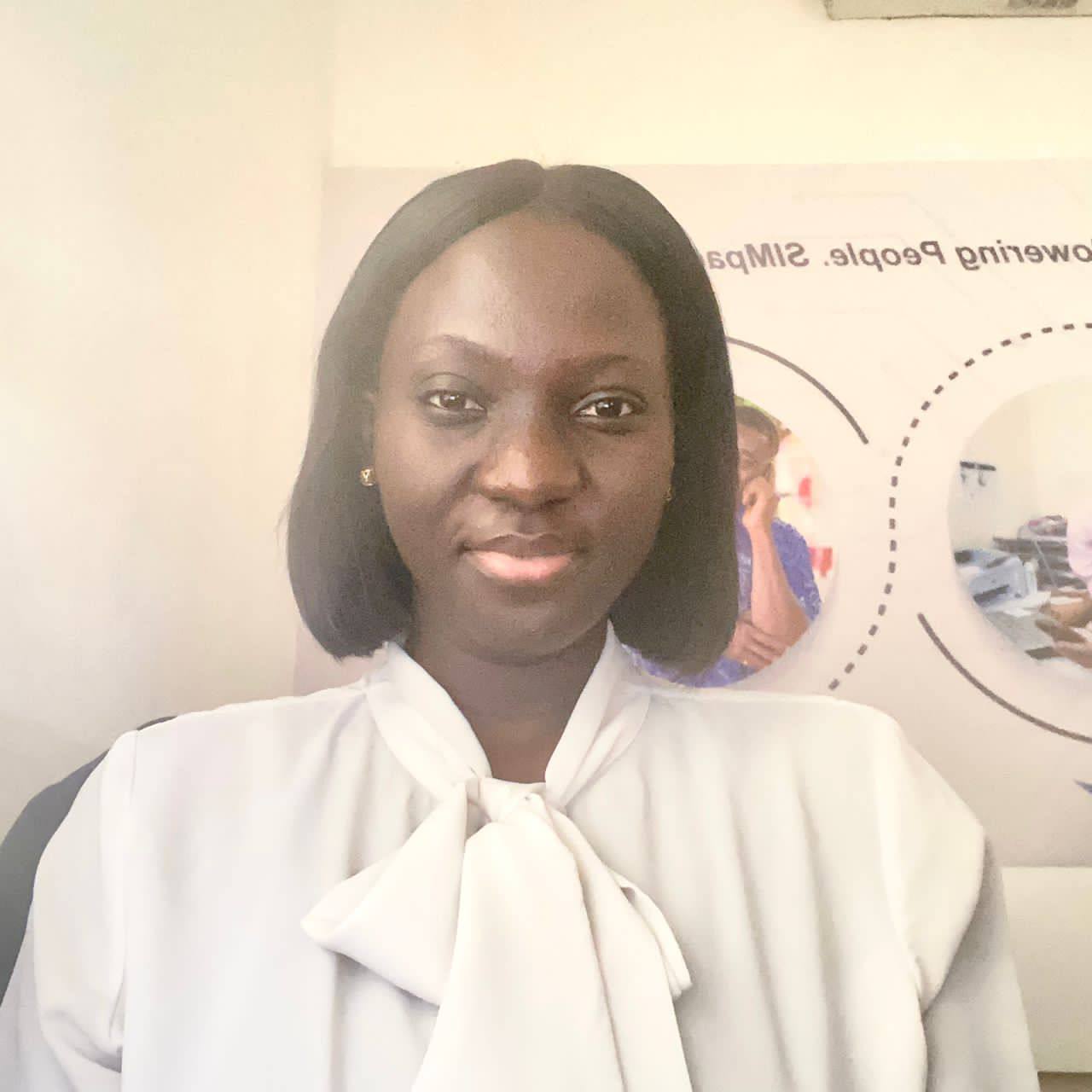










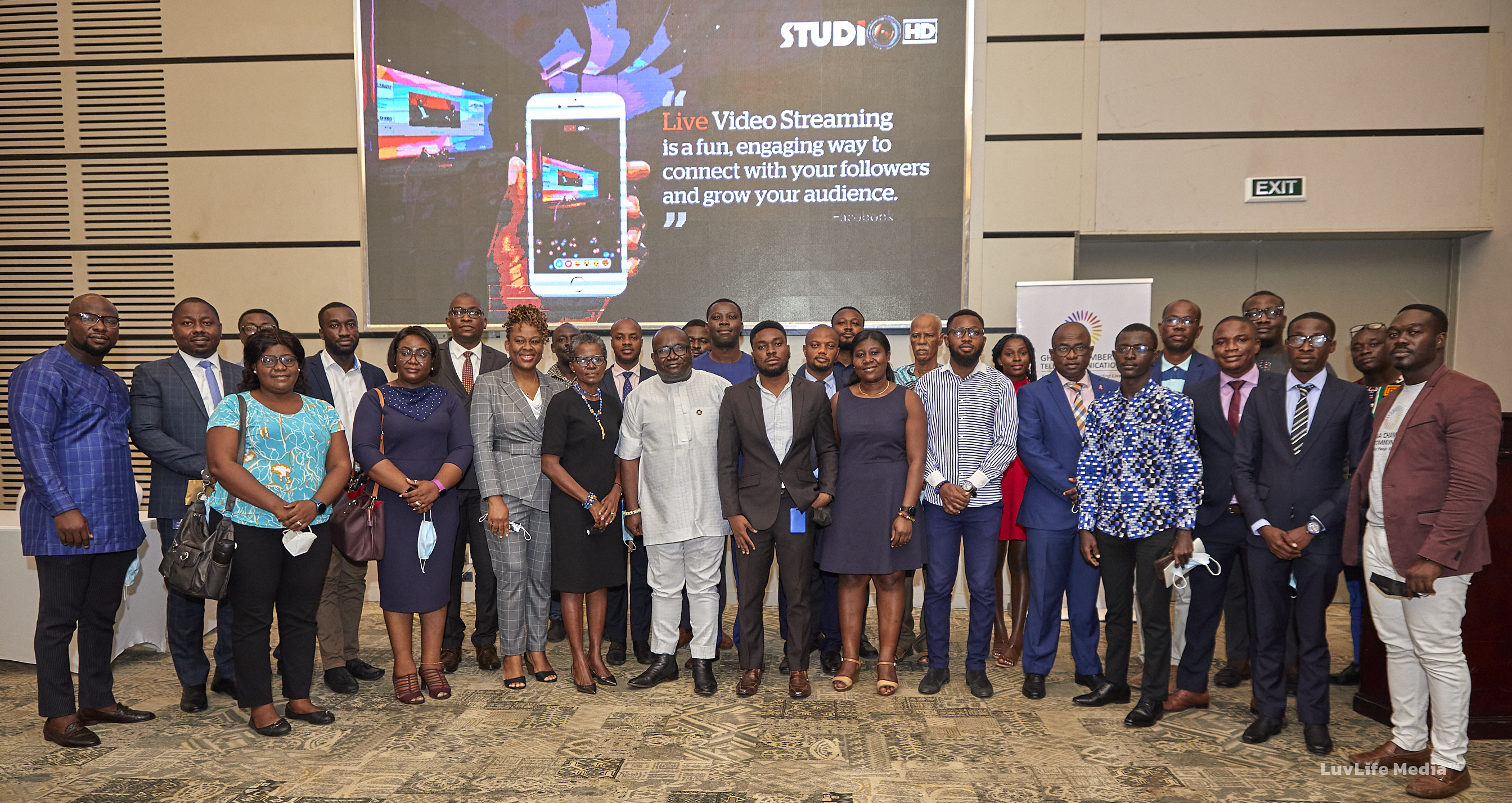
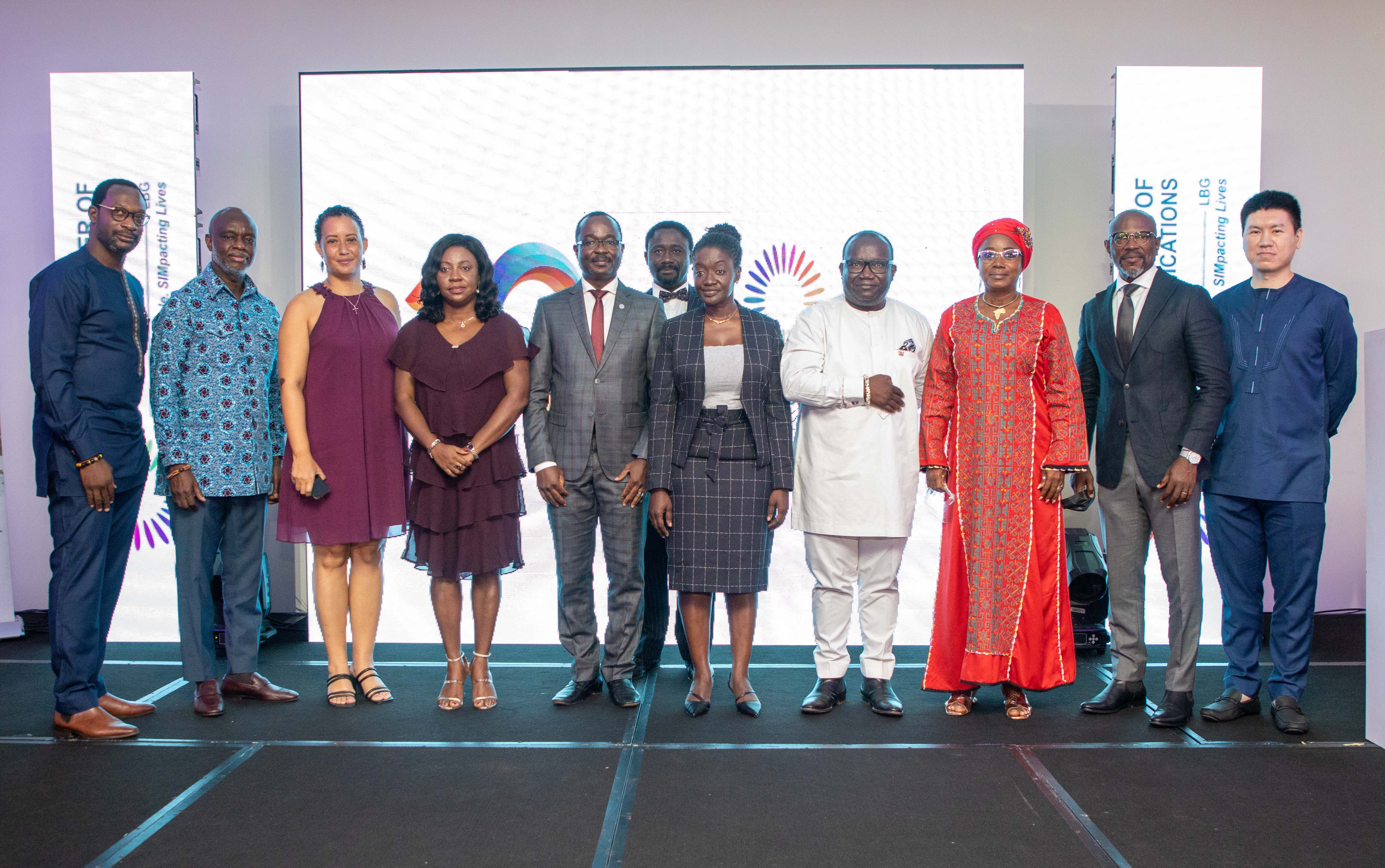

.png)
